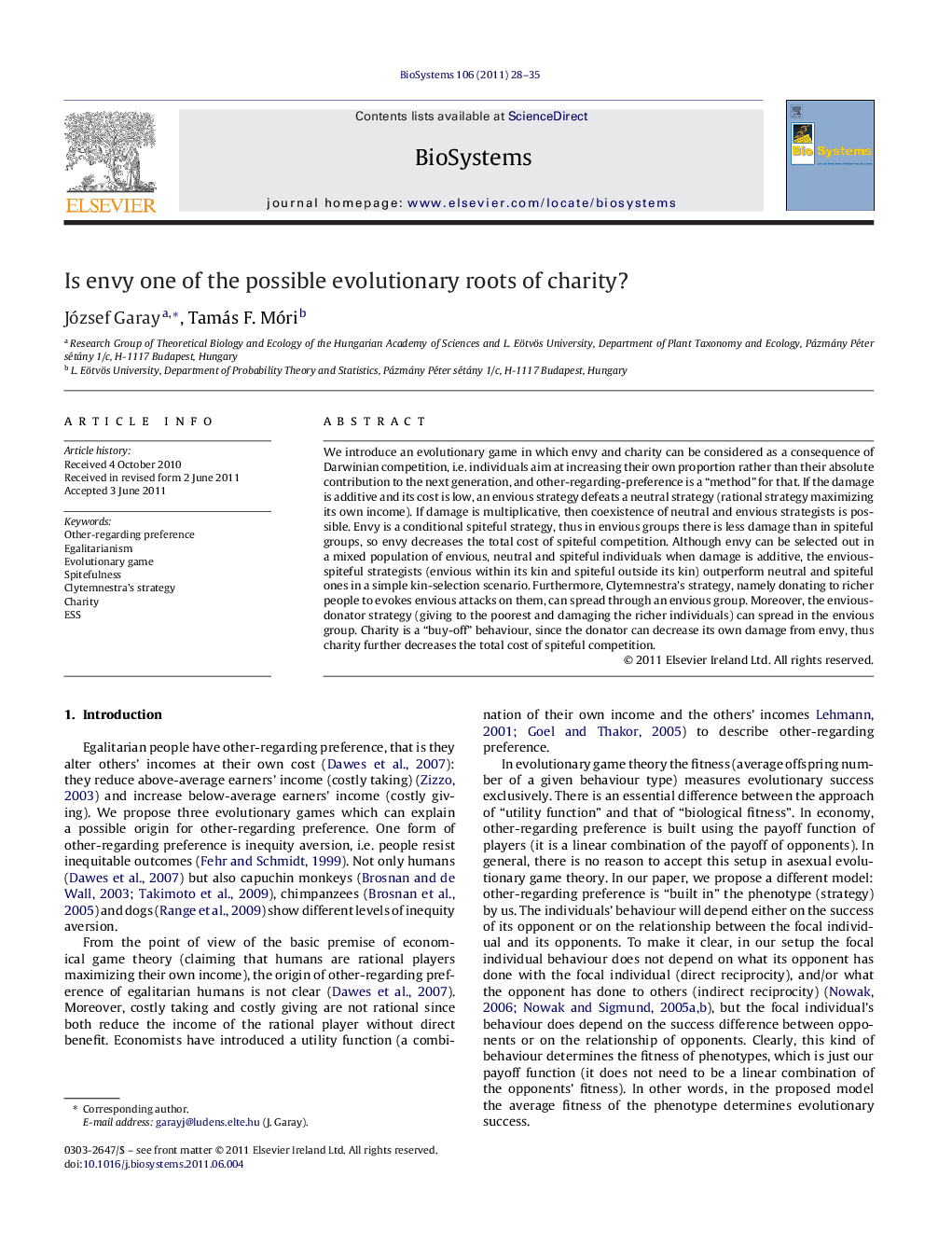| Article ID | Journal | Published Year | Pages | File Type |
|---|---|---|---|---|
| 2076156 | Biosystems | 2011 | 8 Pages |
We introduce an evolutionary game in which envy and charity can be considered as a consequence of Darwinian competition, i.e. individuals aim at increasing their own proportion rather than their absolute contribution to the next generation, and other-regarding-preference is a “method” for that. If the damage is additive and its cost is low, an envious strategy defeats a neutral strategy (rational strategy maximizing its own income). If damage is multiplicative, then coexistence of neutral and envious strategists is possible. Envy is a conditional spiteful strategy, thus in envious groups there is less damage than in spiteful groups, so envy decreases the total cost of spiteful competition. Although envy can be selected out in a mixed population of envious, neutral and spiteful individuals when damage is additive, the envious-spiteful strategists (envious within its kin and spiteful outside its kin) outperform neutral and spiteful ones in a simple kin-selection scenario. Furthermore, Clytemnestra’s strategy, namely donating to richer people to evokes envious attacks on them, can spread through an envious group. Moreover, the envious-donator strategy (giving to the poorest and damaging the richer individuals) can spread in the envious group. Charity is a “buy-off” behaviour, since the donator can decrease its own damage from envy, thus charity further decreases the total cost of spiteful competition.
